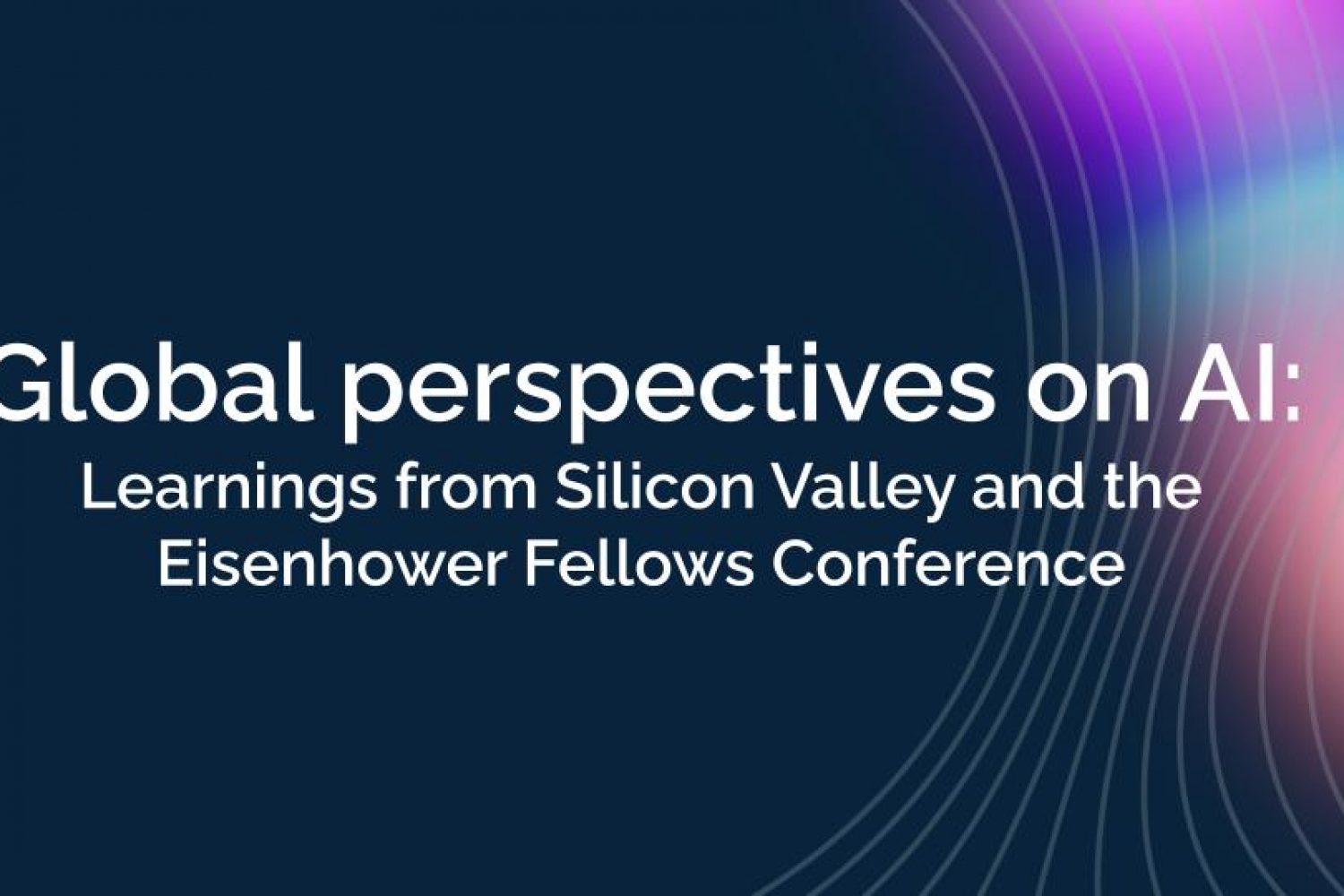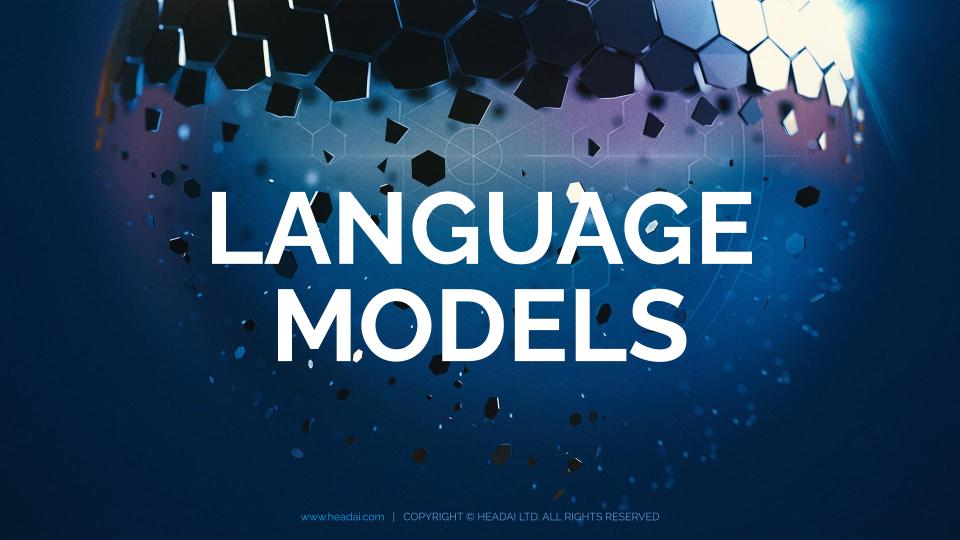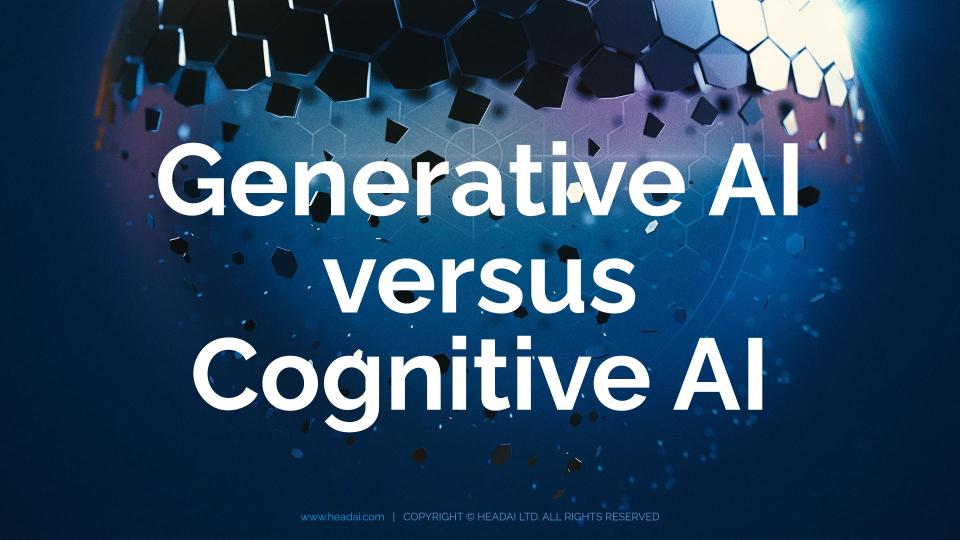Headai’s CEO Harri Ketamo and CBO Anu Passi-Rauste recently travelled across the Atlantic to meet with players in the field of AI in the United States, as well as participate in the Eisenhower Fellowships 70th Anniversary World Forum on the same occasion.
A week spent in San Francisco meeting several key players in AI brought many insights into what the conversation around AI and the developments in the field look like in the USA. This was a much-needed opportunity to reflect on how the conversation differs from the ones in Finland and Europe, as well as what part of the messages springing from Silicon Valley carry to Europe.
“In Silicon Valley, it is very clearly acknowledged that when it comes to AI there are numerous players, and while big players operate in the platform economy, there is no worry about the centralisation of the economy around the big five. Instead, business forms as verticals around platforms, and these verticals are still in the process of finding their place in the industry,” Harri comments.
Additionally, a notable difference to our conversations in Europe that centre around the general terms of AI or generative AI is a focus on explicitly large language models (LLM), regardless of their basis on words, pixels, or others. This has the advantage of focusing the discussion more on a subsection of the technology than the broad concept of AI.
On the other hand, while discussions on AI in a European context focus on ethical approaches to data, this seems to be outside of a central place in Silicon Valley, which pinpoints a clear difference in the attitudes towards data and priority topics between the two markets. Similarly, while thinking in ecosystems is also topical, data spaces as such are not at the heart of the conversation.
Overall, the conversations we had made it very clear that the attitude at the moment is not to race to challenge the biggest players in the field, but rather to navigate in a growing field where business is forming and that is finding its place. The proximity of AI players to the platform giants in the United States shapes a different form of network and dynamics between them than the European approach of originally more disconnected players currently connecting to form data ecosystems. The priorities concerning the development of AI differ between our two continents to a certain extent, but a collaborative effort is needed to build solid structures and practices independently of geography.
As a case in point of global collaboration, the trip was also an opportunity to participate in the Eisenhower Fellowships 70th Anniversary World Forum organised for Eisenhower Fellows. The event gathering over 400 fellows from around the world was an opportunity to connect, and with AI as one of the core topics, also broaden the reflections on attitudes towards AI to a global perspective. The session centred on Preparing for AI Future provided particularly valuable reflections and perspectives, delving straight into in-depth discussions on visions of where the world is headed concerning AI, what this means, and essentially, what kind of humanity is needed around AI.
In contrast to our earlier conversations in Silicon Valley, a more global expectation in the development of AI focuses on operating principles. Players in the field of AI are requesting guidance and consensus on action points, but rather than providing this in the form of regulations or legal requirements, the establishment of industry-wide codes of conduct and value-based rules arose as a solution. It can be expected that this topic will rise increasingly in urgency, and we will see increasing action being taken around it globally and locally.
While the US market carries a strong weight in the development of AI as one of the real hubs for the development of many technologies and businesses, the world is also looking for solutions to other priorities than the ones in that market. For this reason, approaches such as the EU’s strategy work on ethics of AI and AI dataspaces are crucial to respond to such needs. It is however particularly important to ensure that it does not remain at the level of regulatory talks, but results in a solid foundation of good practices in the industry overall through all players’ deep understanding of the matter, as well as practical guidelines on how those contributing to the development of AI technologies can implement ethical approaches.
To conclude, the topic of ethics in AI is raising more questions, opinions and perspectives than ever. In these times it is good to remember that ethics has been at the core of AI development since day one, notably due to the scientific roots and the unavoidable questions raised by ethics of science in any technological development. Now that AI has been mainstreamed, the history of science is far too often forgotten in the name of progress or structure. Ethics does not however equal regulations, nor does it oppose progress: no matter whether there is regulation or not, we can always be responsible for the progress and innovations we make – if we want. Rather than focus overly on the idea of regulation, we would like to challenge all actors in the field of AI to consider the real meaning of ethics in AI, and its connection to the goals we want to achieve using this technology.
About Headai
Headai is a Finnish technology company developing a cognitive AI engine powering economic growth. We help organizations succeed in a rapidly changing future by helping them find answers in large amounts of data that they can’t otherwise see.
Our algorithms enable seeing the big picture in scattered data by revealing unknown connections and even explaining why they exist.
Our technology is 100% Headai IP, based on over 20 years of experience in the cognitive and computational sciences.



